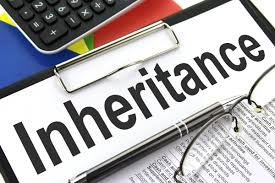 Here are some of the most commonly asked questions about London equity release scheme. If your query isn’t covered here, or you would like more information on something which is, please get in touch.
Here are some of the most commonly asked questions about London equity release scheme. If your query isn’t covered here, or you would like more information on something which is, please get in touch.
Who is eligible for equity release schemes?
The exact criteria may differ between equity release providers, but in general applicant(s) must:
- Own a property of at least a certain value
- Own this property
- Be at least 55 years old

Will tax have to be paid on the money received from an equity release scheme?
No, the lump sum received is tax free.
Will any state benefits received be reduced if equity is released on our home?
This depends on the type of benefit received. These which are means tested – so paid to you based on your financial situation at the time you applied for them then they may change as a result. It is wise to check out your situation with an agency such as the Citizen’s Advice Bureau.

Will the equity scheme end if I need to move into residential care?
If you are the only named person on the plan, and your move is long term, it’s likely your home would need to be sold and the total owing on the equity plan repaid. On the other hand, if it is in joint names and one person remains at home then there should be no problem.
If I die can my life partner still live in the property?
Only if either:
- the equity release paperwork was taken out in both names, or
- [if in your name only], the mortgage outstanding can be paid back in full
It’s important to bear this in mind when making a decision.
Plus, if you marry or cohabit after having signed for an equity release scheme and you would like to add their name to the paperwork your provider must be approached immediately. There is no guarantee, however, that this can be done.
What happens if the final amount owed is more than the value of my property?
Always check that a lifetime mortgage you take out has a clause to protect your agreement from the effects of negative equity. This is a standard option for most lenders nowadays, and it guarantees your estate is not left with a debt after your death.

Is it possible to keep part of my home’s value back for people to inherit?
Yes, you simply either borrow or ‘sell’ less than the value given to your home, securing the balance for inheritances. It is wise to make close family and friends who may reasonably expect to inherit from you are aware of your plans.
How much equity can be released?
This generally depends on factors such as:
- How old the person/people applying are
- How much the property involved is worth
- The type of equity release scheme chosen
Does someone taking out an equity release scheme on their home become a tenant in the property?
No, to all intents and purposes nothing changes in terms of general responsibilities, as you own the property until your death; which means you must continue to insure, maintain and repair the property as before.

Are there any rules about what I can do with the money released?
- Barring investing in illegal activities you are free to do whatever you want with the equity you release. Popular ways to use it include: investing to create a lifetime income, buying a new vehicle, furniture or white goods, gifting sums to family members, and taking a holiday.
Is an equity release scheme the only option if I find living in my property financially challenging?
Equity release isn’t the only avenue open, but it is the most convenient and means you can remain in your familiar home if that’s what you prefer. However, you could choose instead to:
- Downsize to a more manageable property
- Look for someone to rent a room or section of your home
- Take on a regular mortgage
- Postpone retirement or take a second/part time job

Do I have to take the full amount of equity offered?
Not necessarily. If your provider offers a ‘drawdown’ scheme you choose how much money to release as and when you like, and pay interest only on the capital released.
Is it possible to cancel the equity release scheme at some point in the future?
Equity release plans are not designed for this purpose, but the lifetime mortgage type of scheme does allow early repayment of the amount borrowed, and the interest attracted to that point.
Do equity release schemes require regular monthly payments like a mortgage?
In general they don’t as everything is paid from the sale of your property when the scheme ends, however interest only schemes work differently and do require payments. Ask your advisor for more details on which type is best for you.

Is it possible to move homes down the line?
Generally yes, though all lenders have their own rules and guidelines on this topic. In most cases the equity plan can simply be transferred to the new property.













